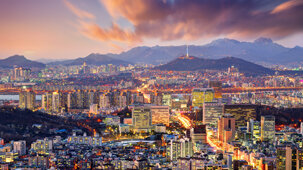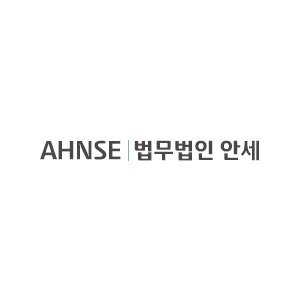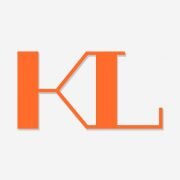Best Energy Regulatory Law Lawyers in Seoul
Share your needs with us, get contacted by law firms.
Free. Takes 2 min.
List of the best lawyers in Seoul, South Korea
About Energy Regulatory Law in Seoul, South Korea
Energy Regulatory Law in Seoul, South Korea refers to the body of laws and regulations governing the production, distribution, consumption, and oversight of energy resources such as electricity, gas, and renewable sources. These laws are designed to ensure that energy is produced and consumed safely, efficiently, and in an environmentally responsible way. They also regulate energy prices, market competition, consumer protection, and the integration of new technologies. South Korea has been working to reduce its dependence on fossil fuels and promote renewable energy, resulting in dynamic and frequently updated energy regulations, particularly affecting businesses operating in Seoul, the nation’s capital and largest metropolitan area.
Why You May Need a Lawyer
Engaging a lawyer who specializes in Energy Regulatory Law in Seoul can be essential in several situations. These include:
- Complying with licensing or permit requirements for energy production or distribution
- Navigating complex regulations for launching renewable energy projects
- Addressing disputes with regulatory authorities, utility companies, or other stakeholders
- Responding to changes in local or national energy policies that may impact your business operations
- Challenging fines or penalties for alleged regulatory violations
- Negotiating and drafting contracts related to energy supply, purchase agreements, or joint ventures
- Understanding and leveraging government incentives or subsidies for green energy initiatives
- Resolving issues related to land use or zoning in the context of energy infrastructure
Local Laws Overview
In Seoul, Energy Regulatory Law is influenced by both national legislation and local ordinances. The Ministry of Trade, Industry and Energy (MOTIE) is Korea’s central government authority on energy policy, while the Korea Energy Agency is responsible for policy implementation and enforcement. Relevant frameworks include the Electricity Business Act, the Act on the Promotion of the Development, Use and Diffusion of New and Renewable Energy, and the Energy Act. Local Seoul Metropolitan Government regulations may introduce additional requirements regarding environmental impacts, urban planning, and utility provision.
Key topics covered by these laws include:
- Licensing and permit procedures for energy facilities
- Rate setting and tariff regulation
- Grid access and market competition principles
- Policies for encouraging renewable energy adoption
- Requirements for energy efficiency and emissions reduction
- Consumer protection and dispute resolution mechanisms
Frequently Asked Questions
What is the main regulatory authority for energy law in Seoul?
The main regulatory authority is the Ministry of Trade, Industry and Energy (MOTIE). The Seoul Metropolitan Government and the Korea Energy Agency also play significant roles depending on the issue.
Do I need a license to operate a solar power facility in Seoul?
Yes, you must obtain specific permits and licenses from relevant authorities. The application process includes demonstrating compliance with environmental, zoning, and safety standards. Local approvals from Seoul’s municipal authorities may also be required.
Are there incentives for using renewable energy in Seoul?
Both the national and Seoul Metropolitan Governments offer incentives such as subsidies, tax benefits, and low-interest financing for renewable energy projects to promote the transition away from fossil fuels.
Can foreign entities invest in the energy sector in Seoul?
Foreign investment is generally allowed, but certain activities such as utility operation may require joint ventures with domestic partners or approval from government agencies.
What are the major laws governing energy in Seoul?
Key laws include the Electricity Business Act, Energy Act, and the Act on the Promotion of the Development, Use and Diffusion of New and Renewable Energy.
How are electricity tariffs regulated?
Electricity tariffs are regulated by the government to ensure fair pricing for both consumers and providers. Changes require rigorous review and approval by authorities such as MOTIE.
What should I do if I receive a penalty for an alleged regulatory violation?
You should consult with an energy regulatory lawyer for advice on how to respond. In many cases, there are formal processes for appeal or negotiation with the relevant authorities.
Is it possible for private companies to sell electricity directly to consumers in Seoul?
The electricity market is gradually liberalizing, but certain restrictions still apply. Talk to a legal professional about the latest requirements and your eligibility.
What environmental regulations affect energy projects in Seoul?
Projects must comply with both national environmental laws and Seoul’s local ordinances, which include assessments for emissions, energy efficiency, and impacts on local communities.
Where can I get advice or support about energy law compliance?
You can seek advice from specialized law firms, trade associations, the Seoul Metropolitan Government, or the Korea Energy Agency.
Additional Resources
If you need more information or support regarding Energy Regulatory Law in Seoul, consider contacting:
- The Ministry of Trade, Industry and Energy (MOTIE)
- Korea Energy Agency (KEA)
- Seoul Metropolitan Government’s Environment and Energy Division
- Korea Electric Power Corporation (KEPCO) for utility-related inquiries
- Korea Energy Law Association or similar professional organizations
Next Steps
If you require legal assistance in Energy Regulatory Law in Seoul, begin by gathering all relevant documentation related to your inquiry or issue. Identify your specific needs, such as compliance advice, dispute resolution, or permit applications. Research local law firms or legal practitioners who specialize in energy regulation.
Arrange a consultation to discuss your case in detail. Be prepared to ask questions about your obligations, possible courses of action, expected timelines, and estimated legal costs. Engaging an experienced lawyer will help you navigate the complex regulatory landscape and ensure your interests are protected while remaining compliant with the latest local and national energy laws.
Lawzana helps you find the best lawyers and law firms in Seoul through a curated and pre-screened list of qualified legal professionals. Our platform offers rankings and detailed profiles of attorneys and law firms, allowing you to compare based on practice areas, including Energy Regulatory Law, experience, and client feedback.
Each profile includes a description of the firm's areas of practice, client reviews, team members and partners, year of establishment, spoken languages, office locations, contact information, social media presence, and any published articles or resources. Most firms on our platform speak English and are experienced in both local and international legal matters.
Get a quote from top-rated law firms in Seoul, South Korea — quickly, securely, and without unnecessary hassle.
Disclaimer:
The information provided on this page is for general informational purposes only and does not constitute legal advice. While we strive to ensure the accuracy and relevance of the content, legal information may change over time, and interpretations of the law can vary. You should always consult with a qualified legal professional for advice specific to your situation.
We disclaim all liability for actions taken or not taken based on the content of this page. If you believe any information is incorrect or outdated, please contact us, and we will review and update it where appropriate.















